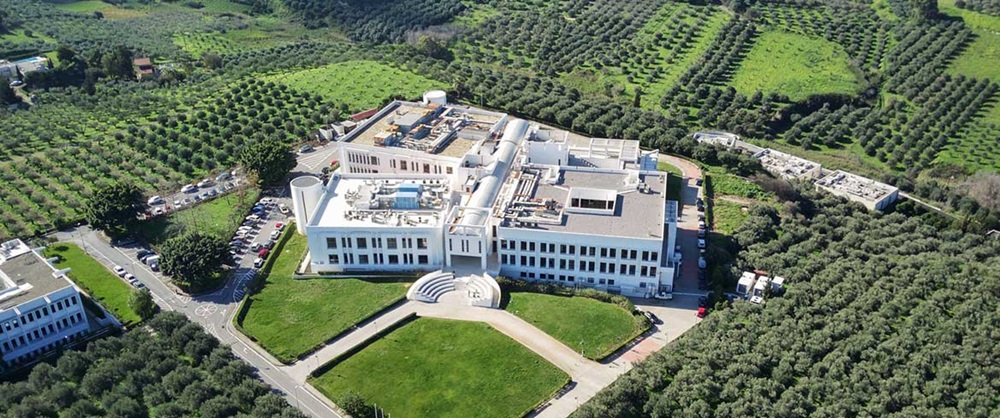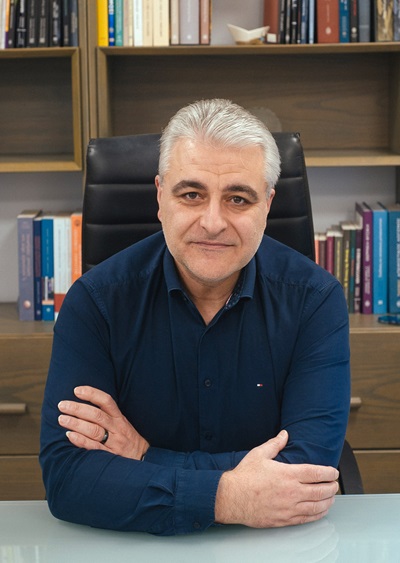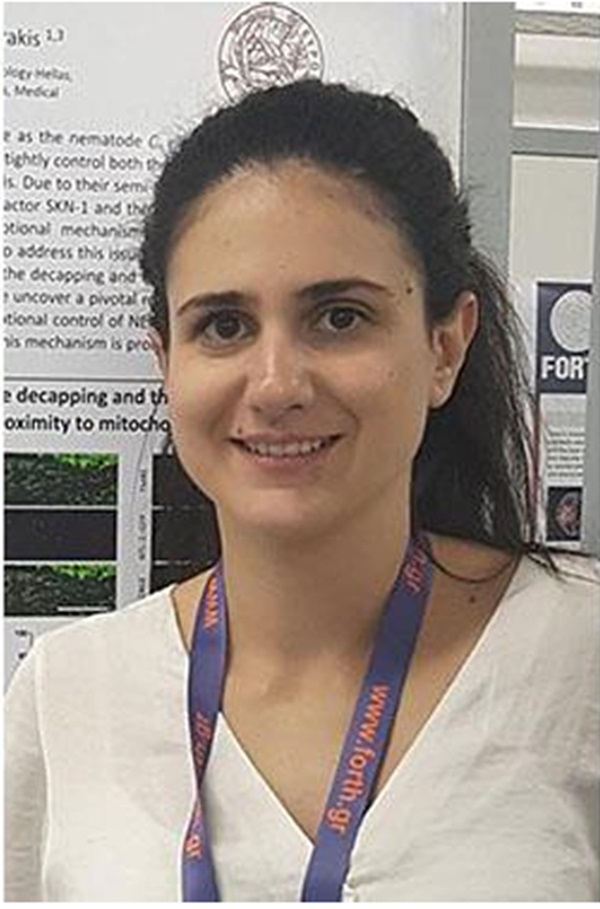
Recent research at the Institute of Molecular Biology and Biotechnology (IMBB) of the Foundation for Research and Technology-Hellas (FORTH), at the Paris Cité University, and at the University of Graz, published today in the premier international science periodical Nature Cell Biology, sheds light on the mechanism through which spermidine regulates autophagy, a process that ensures the recycling of components within the cell, to promote the anti-ageing effects of intermittent fasting.

Dr. Nektarios Tavernarakis
IMBB Researchers, Dr. Ioanna Daskalaki and Dr. Ilias Gkikas, led by Dr. Nektarios Tavernarakis (Professor at the Medical School of the University of Crete, and Chairman of the Board of Directors at FORTH, Greece), in collaboration with the research groups of Dr. Guido Kroemer (Professor at Paris Cité University, France) and Dr. Frank Madeo (Professor at the University of Graz, Austria), demonstrated that intermittent fasting increases the levels of spermidine, a chemical compound (natural polyamine), that enhances the resilience and survival of cells and organisms, through the activation of autophagy.

Dr. Elias Gkikas
Autophagy is a process of cellular recycling, the destruction of non-functional/unnecessary components and organelles of the cell.Autophagy defects have been linked to ageing, as well as,with the emergence of age-relateddisorders, such as diabetes, cardiovascular diseases, cancer and neurodegenerative diseases.Dietary habits, such as low or high-fat diet, over-nutrition, or fasting can influence the development of these chronic diseases, the prevalence of which is expected to increase considerably in the coming years. Dietary interventions, such as caloric restriction and intermittent fasting, can slow down ageing and promote longevity. A key element of these interventions is the maintenance of cellular homeostasis through the induction of autophagy. Direct administration of spermidine is an alternative strategy for inducing autophagy and extending lifespan. However, the role of spermidine in the regulation of autophagy and ageing upon intermittent fasting remains unclear.

Dr. Ioanna Daskalaki
Using a range of experimental models, ranging from the nematode (Caenorhabditis elegans), yeast (Saccharomyces cerevisiae), fruit fly (Drosophila melanogaster), mouse (Mus musculus), and human cell lines, the research teams of Prof. Tavernarakis, Prof. Kroemer, and Prof. Madeo have shown that intermittent fasting increases the cellular levels of spermidine, which in turn induces autophagy, resulting in the prolongation of lifespan, in these organisms. Conversely, inhibition of spermidine synthesis, using appropriate inhibitors, counteracts the benefits of autophagy on lifespan through intermittent fasting.
The results of the research, published today, highlight the critical role of spermidine in regulating autophagy under intermittent fasting, thereby improving lifespan expectancy across all model organisms studied.

The fact that the regulation of autophagy through spermidine and intermittent fasting is an evolutionarily conserved process, underscores its central role in monitoring and maintaining cellular homeostasis across different organisms. The study carried out by IMBB researchers and their colleagues, provides crucial insights into the mechanisms through which dietary habits can influence ageing in humans, and suggests new strategies for addressing age-related diseases, aiming to improve both life expectancy and quality of life for the elderly.
More Information:
Prof. NektariosTavernarakis
President, FORTH
Director of Research, IMBB-FORTH
Professor, Medical School, University of Crete
eMail: [email protected] | Tel.: +30 2810391069
Relevant links:







Leave A Comment